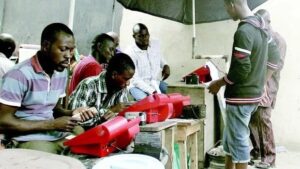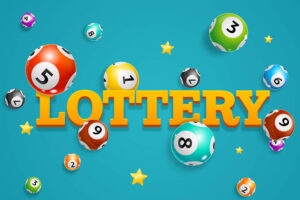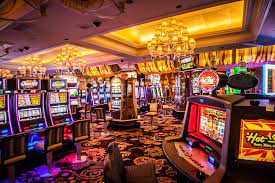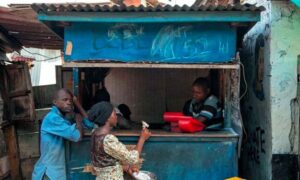The history of lottery operation in Nigeria
Nigeria is the self acclaimed giant of Africa and arguably the largest economy in the continent and so when the country embarks on anything; be it movies, music, arts etc the expectation is always high for them to go all out, and rule the roost. The gaming business in this instance is no exception.
This article will touch on everything about the lottery industry in Nigeria; history, structure, games, key players and the controversies that shaped it till date.
Lottery has always been in existence in Nigeria; it has existed in different forms, often referred to as Kalo Kalo, pool, chacha, cowries etc. Pool especially, was a dominant form of gambling then and was generally run as private businesses. It was immensely frowned upon by society, having a household member who played the pool was like having a prodigal child, justifiably so as families were ignored and neglected, salaries and savings were squandered, players turn to alcohol, substance abuse and domestic violence as the debts stack up and often ended in suicide or grievous bodily harm when the debts are not paid off.
At that time really, the game was unregulated and certain restrictions was not in place and due to this fact, gaming only formed part of the informal sector in the country; silent and uncategorised and therefore no accountability. Some form of legislation was enacted along the way to restrict the importation and ownership of gambling machines in the country and a few others but all in all, there were no proper rules and regulations guiding the space and the activities therein.

BACKGROUND OF THE REGULATED LOTTERY INDUSTRY IN NIGERIA
Fast forward to 1999, the Federal Government seeing that lottery could become a viable sector, sought new ways to bring harmony and sanity into lottery operation that at that time, was characterised by unregulated activities. An Agreement was entered into between the Federal Government and a lottery company called National Sports Lottery (NSL) on the 6th of December, 1999. The Agreement granted NSL under its clause 2; an exclusive national license for a period of thirty (30) years, which will see them operate lottery in the country exclusively for the mentioned period, in order to generate revenues for the federal government. By this agreement, the Federal Govt in its own words and accord waived its right to issue licenses to any other body, for a period of 30 years. The License was then subsequently issued to NSL on the 19th of December, 2001.
In 2004, following a series of issues between NSL and the Lagos State government when the later launched their “e fit be you” project which immediately became popular and successful, the Lagos State government enacted their 2004 gaming law. (This was the antecedent of the fight between state and federal which still rages on till date)
In 2005, the Federal Government established the National Lottery Regulatory Commission (NLRC) by the National Lottery Act, 2005 (NLA 2005) with the primary function of regulating and managing lottery operations in Nigeria.
To honour the Agreement between the Federal Govt and NSL, the NLA (2005) in its Section 32, provided that “any license already granted before the Act by the government shall be deemed to have been granted under the Act”, a provision which adopted and solidified the exclusivity of the 30 year license given to NSL.
THE CONTROVERSIES
The provisions of this agreement and the model, was operated unabated for the first year, with even a government approved sub-franchise agreement between NSL and another Company called Premier Lotto Limited (PLL); until series of events threatened to bring the lottery Industry to total collapse.

In early 2008, NLRC led by Peter Igho, decided to issue multiple licenses to organisations willing to operate the business of lottery in Nigeria, thereby negating the signed agreement between the Federal Government and NSL Plc. One of the recipients of the new license issued out, was Premier Lotto Limited (PLL); a company already under a sub-franchise agreement to NSL, which was then the sole licensee, and so began the cocktail of law suits that almost deflected the industry into chaos.
On the 31st of January, 2013 the Court gave a declaratory judgment in one of the suits and held that the National Lottery Act, 2005 actually conferred exclusivity to the National License granted to NSL, and thus the court further declared all other licenses granted by the Fed Govt through NLRC, to be Null and Void. Then more suits and counter suits ensued until 2015, when the NLRC and NSL, now called Secure Electronic Technology Plc (SET Plc) entered into an out of court settlement, that saw some semblance of harmony and unity restored amongst operators and the regulator.
Also the issue (s) of the prolonged fight between the States and the Federal government on the powers to regulate lotteries and the effect its having on the operation of lottery in the country; the multiple taxation of the industry; the use of government agencies to harass operators, while chasing remittances; the Ghana and Western Lotto deal and the one sided agreement entered into by NLRC to bind operators to a deal they were not a party to etc are few of the raging controversies that has threatened the progress of the Industry.
REGULATION
The National Lottery Regulatory Commission (NLRC) regulates the activities and operation of all lottery games in Nigeria through the provisions of the National Lottery Act 2005. The NLRC also takes guidance from the 2007 regulation made by the governing board of the NLRC and now the NLA 2017 (as amended).
According to the NLA (2005);
“lotteries include any game, scheme, arrangement, system, plan, promotional competition or device for the distribution of prizes by lot or chance, or as a result of the exercise of skill and chance or based on the outcome or sporting events,…which shall be operated according to a license”
In view of the above definition, it can be sufficed to say that almost all Nigerians are involved in lotteries at some levels, as the definition puts into play; video games, promos (by telcos, banks etc) raffle draws by even religious organisations, as all part of the lottery Industry.
STRUCTURE:
The lottery industry in Nigeria has gone through several phases and is now a legalized and regulated gaming space. It has now overcome some of the stigmatization attached to it and can now be seen as a promising ground for employment opportunities and social innovation especially for the youths.
There are three main areas of lotteries regulated in Nigeria; Lottery, Sports betting and Casino. Online/mobile gaming is now on the rise and even video gaming is fast creeping in but we will concentrate on the established and thriving one for this article.
Lottery
Today, following the settlement between the NLRC and the exclusive national lottery carrier NSL, there is nothing like the exclusivity model. There are about 24 national licensed lottery operators in the country, though not more than 10 of them are actually in active operation.

Lottery activities is more prevalent in the south west (most especially Lagos) and the south-south geo-political zones, however, the south-east is fast catching up, with the advent of lotto companies like R&S Lotto holding sway in the eastern states. The Northern states regardless of religious apathy, is not left out, they are recording massive lottery activities as lottery companies like SET Plc are pulling its weight in states like Kano, Katsina and Sokoto. Lagos still remains the centre of lottery activities in Nigeria and PLL holds the largest chunk of the market.
The Nigerian Lottery Operators Forum, estimated that the lottery industry is worth about $70 billion if well regulated, and the National Lottery Regulatory Commission also projected that the lotteries would generate around N45 billion as revenue annually and that the gaming industry generally would generate about N300 billion annually. Actualization of these figures is yet to be seen.
Sports Betting

The advent of sportsbetting into the Nigerian Lottery Industry started gradually and then skyrocketed, which will be largely attributed to the Nation’s love of sports especially football. This growth is evident during top European leagues where betting establishments record massive turnout of bettors on a daily basis. In 2016 alone it was reported that Nigerians spent an estimated N154 billion on betting and the numbers keep growing. It is now touted together with South Africa and Kenya as a $40 billion dollar market.
Casino

Casino still remains the most unpopular form of regulated lotteries in Nigeria. This might be due to the perception of casino as full blown gambling with no benefit to the masses. Also the game and mode of operation is often regarded as the domain of the rich and not accessible as other lotteries. The most notable casinos in the country are in Lagos, like the popular Federal Palace Casino and the Le Meridien Eko Hotel & Casino and the one located at Transcorp Hilton in Abuja.
There are land-based casino games that are legalised in the Country, like bingo, slots, blackjack, roulette etc. Online Casino gambling is still unregulated. In 2013, two companies; Naira games and superior bet launched an online casino, but they quickly went out of operation due to legal issues and financial difficulties associated with their bid to operate online.
KEY PLAYERS
The key players in the lottery gaming community are Premier Lotto (popularly known as baba Ijebu and thus far the most prominent and dominant) he holds the largest portion of the Southwest market and can easily be identified by the big red terminals. R&S Lotto, this Lotto company came in and became quite a force to reckon with, especially in the eastern part of the country. Winners Golden Chance, WESCO Pools & lottery, Richwell Plaza, Give n Take, Gab Lotto Limited, Mobile lotteries Nig Ltd etc, and the new entrants like Western Lotto, Green Lotto, K.C Lotto (owners of BET9JA) are all making their mark in the industry.
Today there are numerous Sportsbetting Companies out there today. The key players are BET9JA, NairaBet, 1960bet, who were amongst the pioneer guys in the sportsbetting space but other sportsbetting companies has sprung up now and is waxing quiet strong; BetKing, 1XBet, PremierBet, MerryBet, AccessBet, BigiBet and a host of others.
GAMES
Nigeria has no official national game yet. The 5/90 game, which is the Ghana national game was brought into Nigeria by some operators a long time ago and has now generated massive market. It is the most popular and most played game in Nigeria, thanks to Premier Lotto Limited (Baba Ijebu) that popularised it all over the country, especially in the South- south and South-West region.
6/49 games, known as the UK lotto, was intended by the provisions in the National Lottery Act to become the national game but it never really took off as envisaged. During the Centenary celebration, the Organisers of the centenary lottery tried to revive the game, to once more become the front liner but that venture failed as well.
Today, many foreign sites like the Lotter, allow players from Nigeria to buy tickets and participate in international lottery games like Powerball, Mega Millions etc through online channels. Many operators have also created their own in-door games. There are also plans underway for the creation of a national game.
Conclusion,
Today, the lottery industry in Nigeria is a multi billion market with massive potentials to rival its counterparts in the rest of the world. Furthermore, if projected and regularised properly and with a harmonised and enabling environment, lottery can be used as a diversification tool to inflate the country’s economy as seen in other countries, where lottery hold sway. With increasing investments coming in from local and international investors, the industry is well poised to become one of the largest revenue generators to the economic growth of the country.






